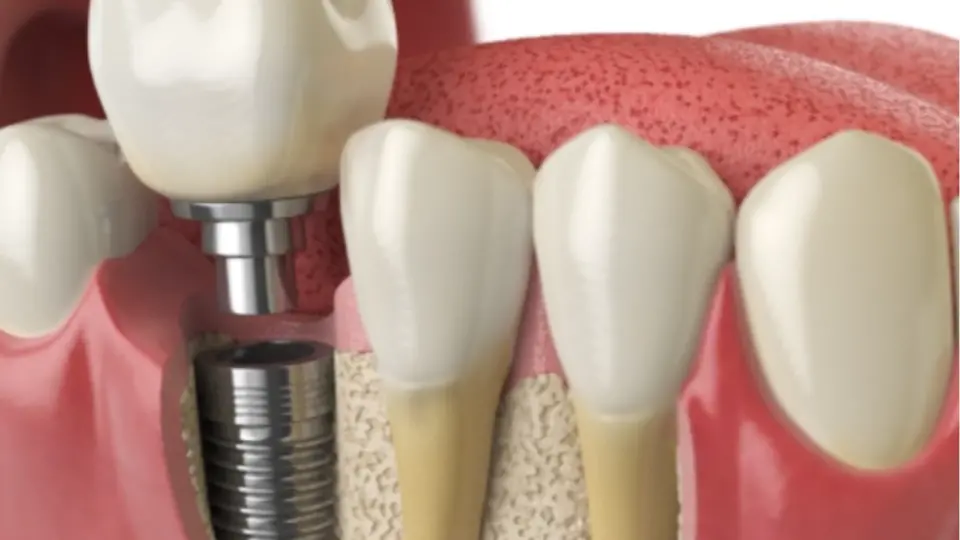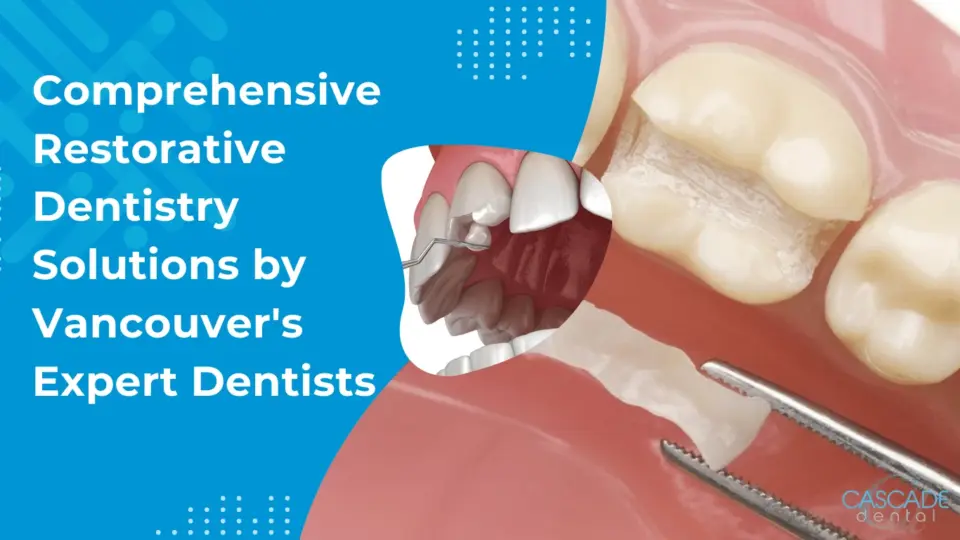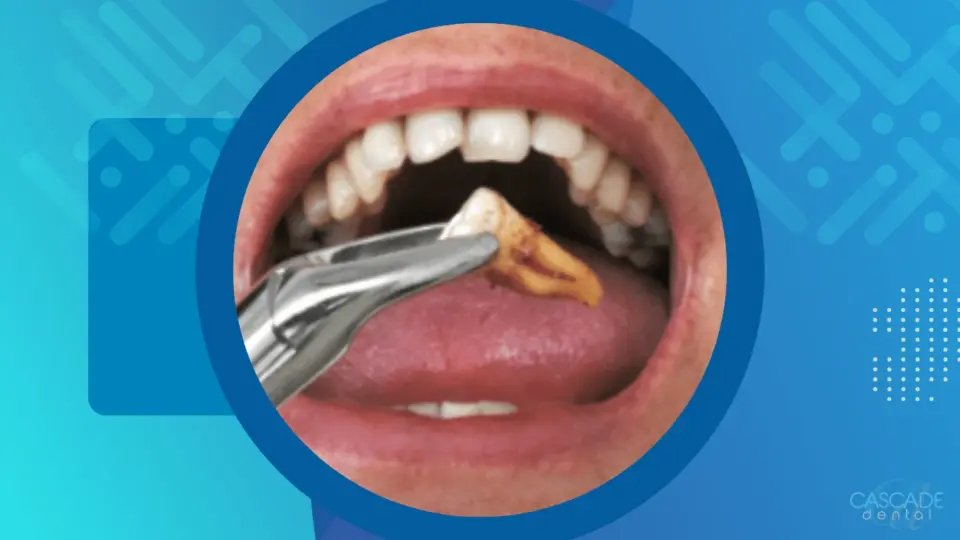Experiencing a sudden, unexplained toothache, splitting a molar on a complex meal, or accidentally knocking out a tooth are all dental emergencies needing prompt, expert evaluation and care. However, there are situations when it might be challenging to determine whether you or another person is in danger. The following information might help you decide if you require emergency dental service and what to do next.
What is a Dental Emergency?
Urgent dental requirements may include, but are not limited to:
- Toothaches/pain.
- Swollen and painful gums.
- Loose tooth or teeth.
- Loose or damaged fillings.
- Problems with dentures.
- Broken or irritable ortho appliances.
As with any medical emergency, seeking immediate professional guidance and care is crucial. Ignoring bleeding, discomfort, or a loose or fractured tooth can lead to issues that demand more involved and costly treatment in the future.
You might wonder, “How do you know if you require a dental emergency service?” Emergency situations frequently involve discomfort, uncontrollable bleeding, or a vulnerable tooth. A vulnerable tooth has been severely fractured, cracked, broken, or knocked out. To increase your chances of keeping your tooth, it’s crucial to get professional help immediately.
What Should I Do if I Think I Need Dental Care in an Emergency?
Deciding where to go in a dental emergency can occasionally be challenging. Your best bet is often to call your dentist. Cascade Dental is aware of how distressing and difficult dental emergencies may be. You can contact Cascade Dental at any time, day or night, whether you are an existing patient or a new patient. If you need to reach our on-call dentist after regular business hours, you may need to leave a voicemail, and they will get back to you real quick.
How Do I Pass the Time While Awaiting a Callback or Care?
Make every effort to maintain your tooth in its socket if it has been severely knocked out or loosened. To assist keep it in place, try placing some damp gauze over it, but be careful not to swallow it. Also, keep in mind to avoid touching the tooth’s root to prevent the spread of new bacteria.
Pain can be reduced, and pain can be maintained while you wait by rinsing your mouth with warm salt water. You can also put on a cold compress to the cheek area next to the tooth to lessen discomfort and swelling.
The Signs
It might be challenging to determine which dental issues constitute emergencies, given the wide variety of dental problems. However, waiting a day to visit the dentist could be the difference between keeping or losing your tooth in more complicated situations. Unsure of how to distinguish between critical and non-urgent issues? When you should contact an emergency dentist, keep an eye out for these symptoms.
Your tooth is broken.
You don’t need to call an emergency dentist if your tooth is chipped and there is no discomfort. A permanent tooth that has been knocked out or even chipped typically hurts. In addition to helping out in pain management, seeking prompt dental care may help save your tooth. If a tooth was knocked out, keep it in a cup of milk until you can get emergency dental care. The likelihood of saving and re-inserting the tooth will rise as a result.
You have unexplainable toothaches.
Undiagnosed, ongoing, and excruciating toothaches may indicate gum disease and infection. Try some at-home remedies initially if the pain is not too severe. However, it’s essential to consult your emergency dentist if the pain persists or gets worse. In the worst situation, you might have a tooth infection. If there is a lump next to the tooth that is giving you discomfort, feel around the gum line. Fever, sensitive teeth, and facial or oral oedema are further warning signs to look out for. If you experience any of these signs, seek an urgent care dental facility immediately.
Your gums are bleeding.
After flossing or if you have been given a gum disease diagnosis, some bleeding of the gums is typical. But it’s crucial to contact your dentist if the bleeding is severe, ongoing, and accompanied by discomfort or swelling. Periodontal disease could be indicated by unexplained bleeding.
Your jaw or mouth is swollen.
A variety of conditions can cause a swollen jaw. It could be brought on by an infection, enlarged lymph nodes, or, in infrequent circumstances, malignancy. As previously said, this is a symptom of gum disease. Making an emergency dentist appointment is essential because you have no way of knowing which is causing the swelling.
Your tongue tastes like coins.
A crown or filling that tastes metallic on your tongue is sometimes a symptom that it has grown loose. As an unsealed filling can invite infection and cavities, it is crucial to seek emergency dental care. If you wait too long, a root canal may be required to solve the issue.
You have lost a crown.
A loose or missing tooth could result from an ill-fitting dental crown. Call your emergency dentist for assistance if you cannot put the crown back in place.
A toothache awakens you at night.
As pain only triggered by cold or hot drinks usually indicates a cavity, throbbing pain that keeps you up at night is often the result of infection. However, abscesses are incredibly painful and can cause fever, so prompt medical attention is necessary.
You have braces, and a wire has come loose.
If your orthodontic wire comes out of place, you should seek urgent dental assistance immediately to repair it before it causes damage to your mouth or gets lost.
You experience mouth trauma.
If you have been struck in the face hard enough to bleed from the mouth or lost a tooth, you must visit the emergency room immediately.
You have had braces for less than a year.
If a wire from your braces has come loose and is poking your gums or cheeks, try pushing it back into place with a pencil eraser. If that doesn’t work, use wax or tweezers to remove it. If the wire cannot be removed or is causing you a lot of pain, visit your emergency dentist immediately.
You have had braces for more than a year.
If you experience discomfort from a broken bracket or wire poking your cheek, try using a cotton swab to push the wire back into place. If that doesn’t work, use tweezers to remove it. If you can’t remove the wire or it is causing you a lot of pain, visit your emergency dentist right away.
You are in pain after getting your braces tightened.
Soreness and discomfort after tightening your braces are normal and should go away within a few days. However, if the pain persists or worsens, contact your emergency dentist.
You have a loose bracket or band.
If you have a loose bracket or band, try to put it back into place with a cotton swab. If that doesn’t work, use tweezers to remove it. If the bracket or band cannot be removed or is causing you much pain, visit your emergency dentist immediately.
Your retainer has broken, and pieces are missing.
Call your orthodontist immediately if your retainer breaks and pieces are missing. In the meantime, avoid eating hard foods and chewing gum, so you don’t damage your teeth further.
You should also avoid whitening toothpaste or mouthwash, as the chemicals can irritate your gums.
If you have a toothache, swollen jaw, a tongue that tastes like coins, a missing crown, or braces poking your cheek, you should seek emergency dental care immediately. These problems could indicate infection, leading to further complications if left untreated. Swollen jaws can also be caused by enlarged lymph nodes or, in sporadic cases, malignancy, so it is essential to get checked out by a medical professional as soon as possible. If you have lost a tooth or experienced mouth trauma, you should go to the emergency room immediately.
At Cascade Dental, we are here to help in any dental emergency. So give us a call today, and we will gladly assist you.


